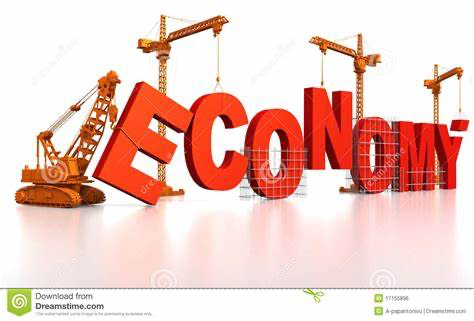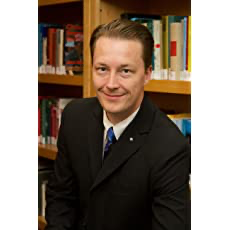

# The Economy through Bylund"s eyes
After reading excerpts from Bylund's views on the economy he sees it as the super complex system that has a mind of it's own almost. I like how he alluded to the Entrepreneur as the "residual claimants of uncertain business." (Bylund, 2016, pg.6) Also having the task of bearing the uncertainty of production is the task for entrepreneurs. That's the perfect generalization for an entrepreneur. He also breaks the economy down by starting at the product the entrepreneur wants to make then from there the entrepreneurs are bidding all the resources they need to make that product which goes more in depth than most understand. The economy is neither good or bad, but fueled by our wants so you can imagine that it can take on many faces with of course sometimes it being ugly which can be in our nature sometimes. It's amazing how far technology has come in the past fifty years and it's exciting to think what we will do in the next fifty years. I hope it doesn't get too out of hand with our leaders and I hope we can figure out the problems we will eventually have with overpopulation if we continue to grow at the same pace.
"In other words, the real market-- an economy engaged in numerous production undertakings-- cannot be anything like the mathematical models we learn in undergraduate and graduate economics courses." (Bylund, 2016, pg. 10)
While referring back to multiple times in his writing the main driving force of the economy is the consumer because without that it does not work. The value created by the economy is purely drove from our wants and needs. "The economy has something of a life it's own: it has a nature."(Bylund, 2022, pg.15) He made this simile to nature because he wanted to iterate that we can study it and try to understand it like we do with the nature outside. The main driving force being action in our economy. He made an example to a candy store owner on how they get the candy in their store and how many different working parts that goes into making that. To immediately go to the source sugar which was made from a farmer with large equipment who probably drank coffee that was sourced from many different places from another country. All of these moving parts make up the economy and make it work so that each person can focus on one aspect rather than just getting by like our ancestors did for so long.
"We never value things in themselves, but for the satisfaction we think they can provide us."(Bylund, 2022, pg. 25)
The quote above describes how Bylund says our actions are driven which I agree. The driving force of our economy is our wants and needs with our wants becoming more and more of a trend as we settle into our capitalistic society because our technology is getting better to where it's not as expensive as it used to be to start little side businesses and do creative twists on older ideas. Our actions is what drive entrepreneurs to create the products that we will want above all others because once we spend our time and energy on the product you can't get it back which is the give and take of the trading we do. With the economy having distinct lines like nature we know that the economy has a general basis for operating. Knowing that we can learn from it and try to better adapt to it to make it work more in our favor because if someone has a general basis then some things can be predicted for you to be successful if your smart or really just persistent.
"To help us understand what is going on in the economy, what is important is not the types and number of goods that sit on store shelves. It is why and how they got there."(Bylund, 2022, pg. 41)
To just go into a store would not tell us much about how everything got there because we are just seeing a snapshot of the process. Really just the end product from a very long entrepreneurial process. When making a product you have to think about the whole source of everything, for example, a box of cereal started by getting plowed in a field with a tractor which is made of steel and thousands of working parts that went into making the tractors and combines that harvest that wheat then it has to be turned to cereal, boxed, logistics of transportation, a sales representative had to sell the product which all started from an entrepreneur thinking he had the perfect niche idea for breakfast cereal. That is the economy, all these different working parts that work together so we can innovate the way we solve our day to day problems. We have really took off in that perspective in the past two hundred years with it continuing to pick up speed in the last couple decades with our developments in technology. I agree with Bylund's views on the economy and how the entrepreneur innovates it while the consumer drives it by their wants and needs with wants getting pushed higher and higher as time goes on.
Bylund, P. L. (2016). Chapter 1: The How of the Market. In Seen, the unseen, and the unrealized: How regulations affect our everyday lives (pp. 1–14). essay, Lexington Books.
Bylund, P. L. (2022). Chapter 1: What Economics Is. In How to Think About the Economy: A Primer (pp. 15–20). essay, Mises Institute.
Bylund, P. L. (2022). Chapter 2: Economic Theory. In How to Think About the Economy: A Primer (pp. 21–26). essay, Mises Institute.
Bylund, P. L. (2022). Chapter 4: A Process, Not a Factory. In How to Think About the Economy: A Primer (pp. 41–50). essay, Mises Institute.
Sources for pictures:
1)https://www.movimentolibertario.com/2020/04/intervista-a-per-bylund-questa-su-zoom-alle-18-00/
2)http://www.clipartpanda.com/categories/economic-clip-art-free pictures:
1)http://www.clipartpanda.com/categories/economic-clip-art-free
2)https://www.movimentolibertario.com/2020/04/intervista-a-per-bylund-questa-su-zoom-alle-18-00/
The author of this post and I have similar views on Byland’s works and it seemes we found similar things interesting. While reading I too found the candy shope example very helpful and quite easy to understand. The author of this post then goes on to explain what Byland meant by using a candy shope as an example, and I have to agree thinking of our economy as cogs to a bigger organism. The author of this post does a good job of reiterating who this example can be better used to explain how our economy works. They do this by explaining that if you think of what had to have happened just in the candy store to get that final product you have to go down a very long chain of getting ingredients, equipment, and other things that were used by the employees. The author started with the ingredients, because it is not as if the candy factory grew their own sugar cane, no they outsourced that. And how did the sugar cane farmers get their product? Well they first would have to get seed, and the equipment to take care of the land and to harvest the seed. So then our next step is to go to the steel factories that form steel into the machines that both the sugar cane farmers and the candy factory use, but they did not mine the ore and smelt the steel themselves, they had to go to yet another company to get this done, and that company just like all the others probably had a coffee pot or lunch for their employees. So as we can see and just like the author of this post and Byland have stated before an economy is not so simple it takes a lot of individual parts to come together. But the goods by themselves have no power over our economy, that is where the consumer comes in, because it is the people that buy things that really make a change. What thye purchase dictates what will thrive and that in turn will change the way the economy works.
While reading The Economy through P. L. Bylund created by the Entrepreneur, I found myself agreeing with the author more often than not. In an assignment like this, I sometimes find it hard to pick a definite side because it’s easy to both agree and disagree with certain statements or messages. However, I really couldn’t find anything I disagreed with or thought poorly of. What really stood out to me initially was this,
“The economy is neither good or bad, but fueled by our wants so you can imagine that it can take on many faces with of course sometimes it being ugly which can be in our nature sometimes.”Our wants as humans are insatiable and it drives us truly mad. The economy is what we make of it as you can clearly see and I believe as a society we don’t have our priorities straight. For the most part, this world is want, want, want, and take, take, take. We need to be able to understand what truly matters and get back to our roots of sharing and growing prosperity. The consumer is the end-all-be-all, as stated in the essay, the consumer drives the market, and drives the economy. I enjoyed how the author really dove into what Bylund was saying about the economy, it’s truly one of the most complicated machines known to man. People spend years studying the economy, studying its past, present, and future. Yet it’s still ridiculously unpredictable, the reason for that is because in nature us humans are unpredictable just the same. So many factors go into our decision process when buying a product but none of us truly realize how the economy reacts and adjusts. The economy is an entity that puts what we want in front of us but we rarely think about how it truly got there. I like that the author talked about something as simple as cereal. The ingredients and time poured into it is baffling, we need to be able to take a step back and realize just how tailored everything is. One product takes an army to make and supports people/families more than we know. The everchanging economy is a beast to be wary of and I’m glad I could find truth & agreement in what Jake, the author, said.